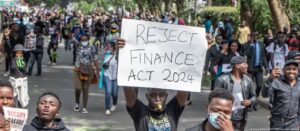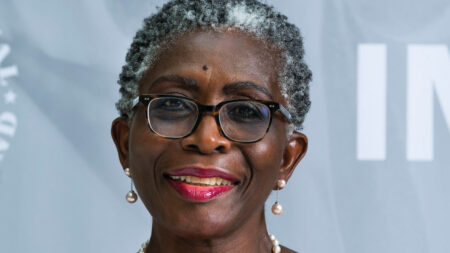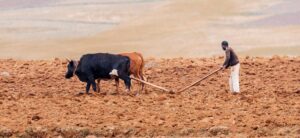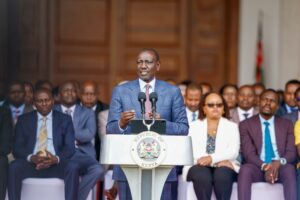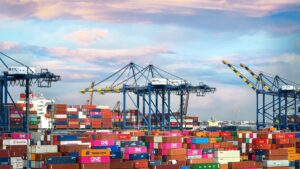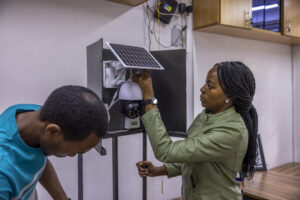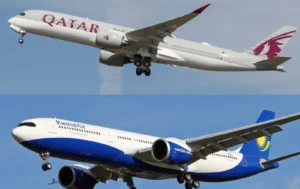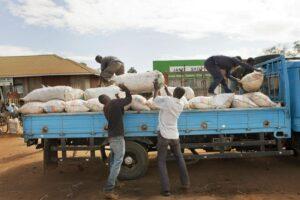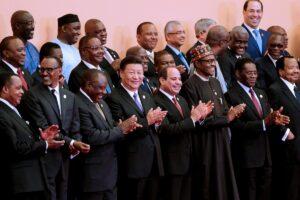- Africa’s new dawn: the rising role of digital and AI in agriculture
- Can Dangote Refinery Transform Africa Energy Ambition
- Gallup Survey: 80 per cent of Kenyan Workers Are Disengaged and Seek New Opportunities
- Madagascar Man Freed from 5KG Tumor After 15-Year Struggle
- How women in Africa are perceived and treated
- Sugar consumption in Kenya to Increase to 1.23 Million Tonnes
- Can Somalia and Turkey Oil deal Bring Change in Somaliland
- Remittances to Kenya dropped to $371.6 million in June, marking a six month low
Africa
- Madagascar man freed from 5KG tumor after the four-hour surgery, his family, including his wife, daughter, and sister, were all waiting for him outside
- By age 53, Fidisoa struggled to do the high level of manual labor required from his livelihood
- He said that the benign tumor, a soft lobular fibroma which weighed 5 kilograms, was now gone for good
A father of three can sleep comfortably on his back for the first time in 15 years after having a massive tumor – weighing 11lbs (5kgs) – removed by surgical charity Mercy Ships.
Malagasy builder and rice farmer Fidisoa was 38 when what appeared to be a tiny pimple on his back started to grow, first into a lump and then into the size of a fist. It continued to grow until Fidisoa looked as if he carried a backpack underneath his shirt.
By age 53, Fidisoa struggled to …
- Only about 50% of women in Kenya and 52% in Uganda feel that they are treated with respect and dignity.
- In Zimbabwe, 60% of women feel that they are treated with respect and dignity. This is a sharp drop from an estimated 71% of women who reported being treated with respect in 2013.
- The percentage of people in South Africa who feel this way was even worse at 27% among men and 28% among women.
In Africa’s most advanced economy South Africa, the percentage of people in South Africa who felt this way was even worse at 27 percent among men and 28 percent among women.
The push for equality across Africa appears far from yielding good results with a new report showing that the perceptions that women are treated with respect and dignity have dropped sharply in recent years in Kenya, Uganda South Africa, and Zimbabwe.
According to Gallup …
- Africa posts sharp decline in support for democracy despite 66 Per cent of the continent preferring democracy over any other system.
- Opposition to military rule has also weakened by 11 points, notably in Mali and Burkina Faso.
- Satisfaction with democracy has notably decreased in prominent democracies like Botswana (-40 points), Mauritius (-40 points), and South Africa (-35 points).
Over the past decade, popular support for democracy has declined sharply in several African countries, and opposition to military rule has weakened a new survey by Afrobarometer has shown.
Afrobarometer’s inaugural flagship report shows that satisfaction with the way democracy works has continued to decline despite that Africans remaining strongly committed to democracy, its norms, and institutions.
The survey covering the period between 2021 and 2023, covers 39 countries, providing data on African experiences and evaluations of democracy, governance, and quality of life.
The findings, based on 53,444 face-to-face interviews, show that …
- About a fifth of children under 17 have received unsolicited online requests to discuss sex or sexual acts.
- Up to a third of children aged 12-17 in Ethiopia and Mozambique are sharing personal information with strangers online.
- An estimated 13 per cent of 12-17-year-olds in Kenya and Mozambique reported being threatened or blackmailed to engage in sexual activities online.
- A third of 9-17-year-olds in South Africa and over a quarter of 12-17-year-olds in Mozambique went on to have face-to-face meetings with individuals they initially met online.
Fresh reports from two of Africa’s leading child rights groups have uncovered a shocking rise in online child sexual exploitation and abuse across the continent. The African Child Policy Forum (ACPF) and ChildFund’s investigations reveal a deeply troubling trend, with children increasingly becoming victims of online predators.
These findings underscore an urgent need for robust measures to combat this growing menace and …
- Africa is experiencing growth in the export of goods and services and its economics outline promising opportunities for further growth.
- As trade volumes continue to rise and digitalization shapes e-commerce, customs, port, and border administrations must adapt quickly to ensure smooth clearance processes, accurate tracking, regulatory compliance, and timely delivery.
In today’s fast-paced world of trade, the demand for efficiency and transparency has never been more pronounced. Digitalization and cutting-edge technologies have continued to streamline trade processes fostering a more efficient trading ecosystem.
Annually, the European Commission’s Customs Union manages a staggering €3.5 trillion in goods trade, highlighting how vital it is to have smooth customs and clearance control checks. In the past decade, Africa has experienced growth in the export of goods and services and its economics outline promising opportunities for further growth aimed at facilitation and integration.
As trade volumes continue to rise and digitalization shapes e-commerce, customs, …
- Four innovators from Kenya, Côte d’Ivoire, and Uganda, selected from a shortlist of 16, vie for the £50,000 (over $62,000) Africa Prize.
- Their innovations encompass recycling in construction, AI tools for healthcare and farming, and reengineered waste collection, addressing crucial societal needs.
- The three runners-up will each receive £15,000 (over $18,000), while a £5,000 (over $6,000) prize titled ‘One to Watch’ will be awarded to the most promising business among the shortlist.
- Since 2014, the Africa Prize has empowered nearly 150 entrepreneurs across 23 African countries, creating over 28,000 jobs and positively impacting more than 10 million people with their innovative products and services.
The Royal Academy of Engineering is set to host the final showdown of the 10th Africa Prize for Engineering Innovation, the continent’s premier engineering accolade, on June 13, 2024, in Nairobi, Kenya. Out of an initial pool of 16 visionary innovators crafting sustainable, scalable engineering solutions …
- “Africa is like China 20 years ago, you see where China is now, so Africa is moving there,” Nael Hailemariam, Founder/CEO Chapa tells global leaders, and investors at AIM Congress 2024.
- Africa’s startup evolution is on, fueled by innovation and a youthful demographic dividend.
- This comparison of Africa to China’s meteoric rise serves as a compelling narrative for investors seeking untapped markets brimming with promise.
A panel discussion titled “The New Geographical Focus of Startups: Spreading Digital Innovation to Africa and Other Places” at the ongoing AIM Congress 2024 in Abu Dhabi has shed light on the startup evolution unfolding across Africa.
Expert speakers lifted the lid on the continent’s burgeoning potential, citing untapped opportunities that are ripe for investment. Nael Hailemariam, CEO/Cofounder of online payment gateway Chapa, captured Africa’s momentum, likening it to China’s trajectory two decades ago. “Africa is like China 20 years ago, you see where …
- Madagascar’s first gold refinery following a strategic partnership and support from the United Arab Emirates.
- Andry Rajoelina, President of Madagascar, terms the move “a major step in the development” of the country’s mining sector.
- At the AIM Congress 2024, Madagascar is marketing its rich potential as an emerging market and its pivotal role in regional trade dynamics.
Madagascar’s first gold refinery
Madagascar is set to join the elite club of countries with gold refinery plants in the world following strategic partnerships and support from the United Arab Emirates (UAE). In his keynote address at the opening ceremony of the 13th edition of the AIM Congress in Abu Dhabi, Andry Rajoelina, President of Madagascar, outlined his nation’s strategic vision for sustainable economic growth and development.
While highlighting the importance of strategic partnerships and investment, President Rajoelina noted Madagascar’s rich potential as an emerging market and its pivotal role in regional …
- His Highness Sheikh Saud bin Saqr Al Qasimi tells delegates to the 2024 Congress in Abu Dhabi: “development can, and should, be reciprocal”
- The Ruler of Ras Al Khaimah, as Guest of Honor, told delegates how the UAE has demonstrated that: “when wisdom and a sense of duty meet vision and hard work, anything is possible”
The United Arab Emirates (UAE) has demonstrated that when wisdom and a sense of duty meet vision and hard work, anything is possible. These were the words of His Highness Sheikh Saud bin Saqr Al Qasimi, UAE Supreme Council Member and Ruler of Ras Al Khaimah, as he delivered the keynote address at the opening of the 13th edition of the AIM Congress on May 7th in Abu Dhabi.
The opening ceremony saw the participation of His Excellency Andry Rajoelina, President of the Republic of Madagascar; His Highness Sheikh Mohammed bin Saud Al Qasimi, …







